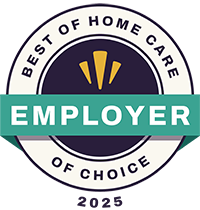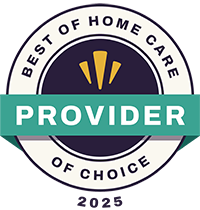Entrepreneurs dream of opening their own businesses, especially in a successful sector. The home healthcare industry was valued at more than $255 billion in 2021, according to a recent report from ResearchAndMarkets.com, and is expected to be worth more than $505 billion by 2030. This growing industry is in high demand as the population, especially baby boomers, age. Still, even in this high-demand, high-growth industry, some healthcare startups fail. So, what makes new healthcare businesses stumble, and how can you steer clear of these pitfalls? Let’s take a look so you can avoid these common mistakes and get to opening your successful home care start up.
Reasons Why Many Healthcare Startups Fail
While there can be several reasons healthcare businesses fail, there are some common culprits. If you have a great team behind you and do your research, hopefully, you won’t fall victim to any of these mistakes.
- Lack of Market Research: One of the primary reasons healthcare startups falter is due to inadequate market research. Your business needs to be in an area where it can serve a large number of your target population. Entrepreneurs often enter the market with a fantastic idea but without understanding if there’s a genuine demand or how to properly position their service. For example, if you’re opening a senior home care business, research into the age of the population in your area is crucial. It’s also important to ensure there is an ample population that your business will be able to serve for many years to come.
- Regulatory Hurdles: The healthcare sector is heavily regulated. Failing to anticipate or understand these regulations can lead to compliance issues, which can be both costly and damaging to the brand’s reputation. Depending on your state and area, regulatory bodies may even fine or shut down your facility for not being in compliance. It’s critical to do your own research into the rules and regulations for the type of healthcare business you want to operate.
- Inadequate Funding: Healthcare businesses can have strong financial needs in the beginning. An entire residential living facility will likely be capital-intensive. Make sure you are opening a business you can afford. Underestimating the required budget or failing to secure enough funding can stop your business before it even opens. The smaller the overhead, typically, the smaller the initial investment.
- Poor Marketing and Outreach: Spreading the word about your business is one of the most important aspects of operations. Without community knowledge that your business exists, you may suffer from a lack of clientele. Even the most revolutionary health services need proper marketing. Neglecting to build a robust marketing strategy or failing to adapt to market changes can spell doom for new business owners.
- Scaling Too Quickly: While expansion is a sign of success, doing it too hastily without a solid foundation or strategy can overextend resources and dilute the quality of care. Growing within your financial means and with a strategy can be a lucrative venture.
Sidestep Mistakes
Research and Planning:
Before diving into the market or any business, the first investment you should spend time and money on is research. Invest time in comprehensive market research. Invest time in researching different business opportunities. Research and understand your target audience, their needs, and how your service fits into the broader healthcare ecosystem. Investing time in research can help build a strong foundation for your healthcare startup.
Don’t Go It Alone:
Consider this quote by Steve Jobs:
“Great things in business are never done by one person. They’re done by a team of people.”
It takes a team to do anything great. Opening a business is a daunting task for the lone entrepreneur. Having a team behind you can help you sidestep mistakes that make other healthcare businesses fail. A great way to do this—for experienced or novice entrepreneurs—is to open a franchise. A franchise system will have an experienced team to help you with the most difficult parts of opening a business. Look for a franchise that helps with:
- Site Selection and Market Research
- Marketing
- Regulatory Compliance
- Owner Training
- Staffing
- Sales Training
Healthcare startups can be one of the more complicated businesses to open due to laws and regulations. Having an experienced and proven business model to follow, along with help from experts, can help reduce risk and minimize the chance of failure.
Find Success with CareBuilders at Home
The healthcare industry is in such high demand, there has never been a better time to join the industry. With CareBuilders at Home, you open a franchise with a proven business model that has been replicated across the country several times over. You also get ongoing training and support. As soon as you become one of our franchise partners, we work with you to help you achieve your dreams. By partnering with us, you can be sure to avoid the costly mistakes some startups make. We help our franchisees with the following and so much more:
- Site Selection and Market Research
- Marketing and Public Relations
- Regulatory Compliance
- Owner Training
- Staffing
- Sales Training
Ready to get started with your own healthcare business? Request information about CareBuilders at Home to learn how we can build compassionate care businesses together.










